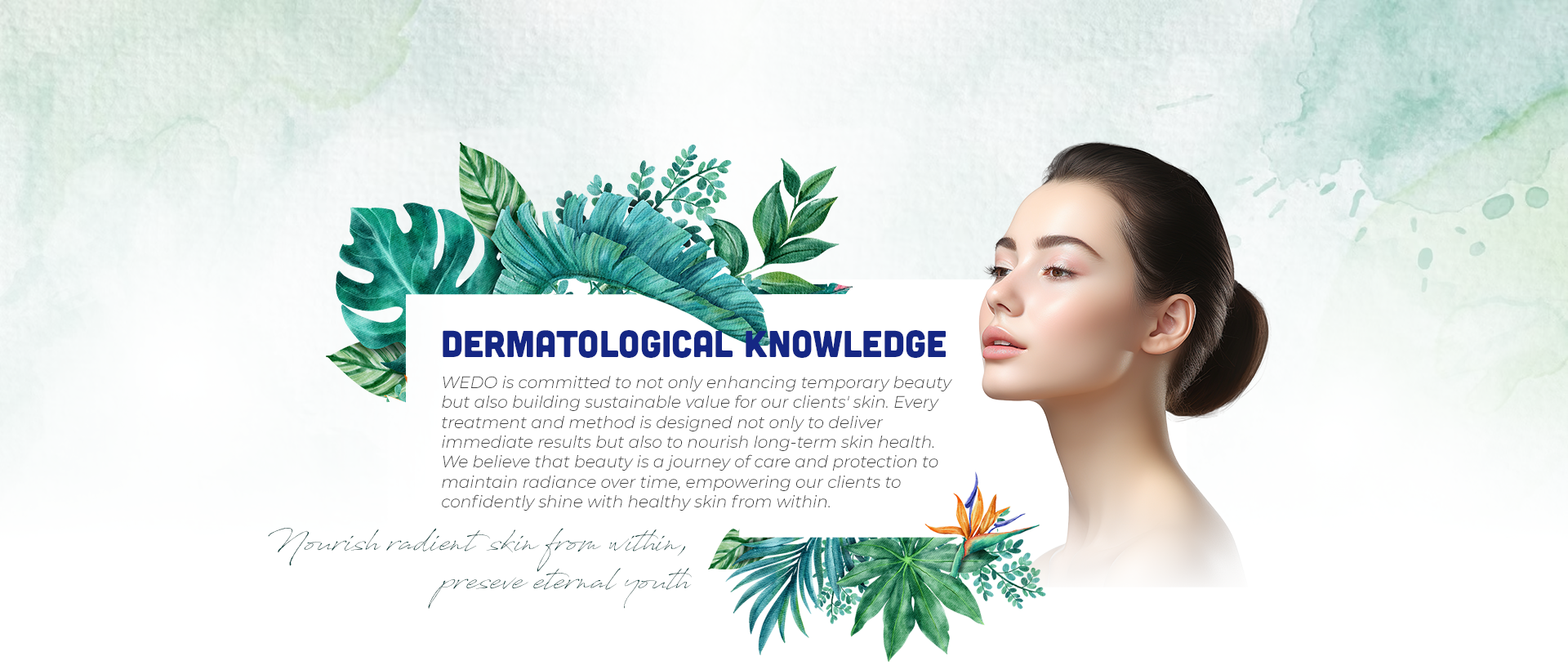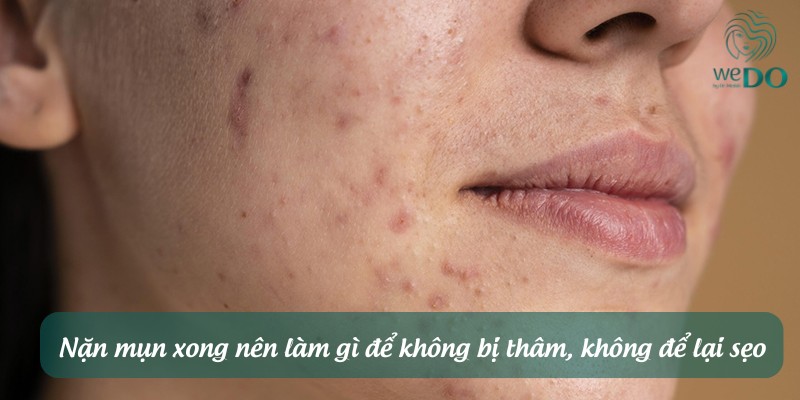Skin Growths 101: Why Do Moles, Warts, Skin Tags, & Milia Appear?
Jawline acne comes in various types and severity levels, depending on the skin condition. It is estimated that over 50% of women aged 20-29 experience this issue. So, what causes hormonal acne on the jawline? How can it be treated? Are there preventive measures? All will be answered in the following article. What Are the
Cách chăm sóc da sau khi mới nặn mụn đóng một vai trò rất lớn đến việc hồi phục sự mịn màng của làn da về sau. Bởi vì nếu da được chăm sóc cẩn thận thì sẽ tránh tối đa nguy cơ hình thành vết thâm và sẹo trên làn da. Vậy nặn mụn
CONTENT
Skin growths are a common occurrence and can often cause concern. While most are harmless, it’s essential to understand their causes and preventive measures. This article will delve into four common skin growths: moles, warts, skin tags, and milia.
Moles
Moles are typically benign growths that appear as raised or flat, pigmented spots on the skin. They can be present at birth or develop later in life. While most moles are harmless, it’s crucial to monitor for any changes in size, shape, or color, as these could signal a more serious condition.
- Causes: The exact cause of moles is unknown, but genetic factors play a significant role. Exposure to ultraviolet (UV) radiation from the sun can also contribute to the development of new moles or the darkening of existing ones.
- Prevention: To reduce the risk of developing new moles or changes in existing ones, it’s essential to protect your skin from excessive sun exposure. Use sunscreen with a high SPF, wear protective clothing, and seek shade during peak sun hours.
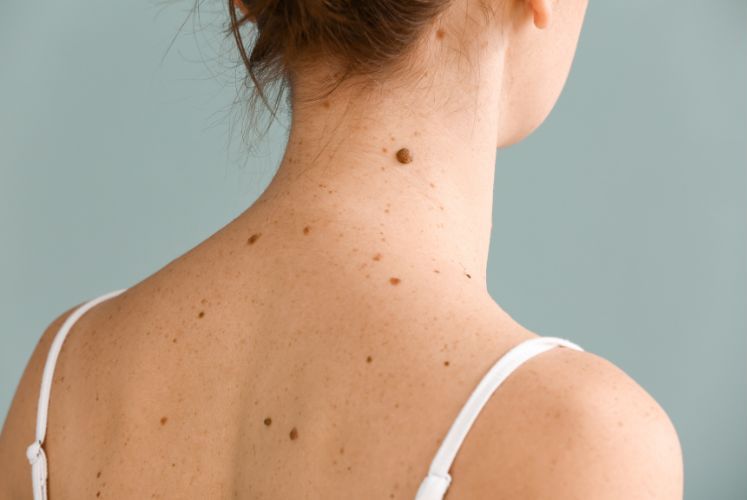
While most moles are benign, a small percentage can be cancerous. Melanoma, the deadliest form of skin cancer, often arises from existing moles. Regular self-examinations and visits to a dermatologist are crucial for early detection.
ABCDE Rule is a helpful mnemonic for recognizing potentially cancerous moles:
- Asymmetry: One half doesn’t match the other.
- Border: Irregular, notched, or blurred edges.
- Color: Uneven or multiple colors.
- Diameter: Larger than a pencil eraser (usually 6 mm).
- Evolving: Changing in size, shape, or color.
Warts
Warts are contagious growths caused by the human papillomavirus (HPV). They can appear on any part of the body and can be flat, raised, or rough in texture. Warts are often spread through direct contact with an infected person or by touching a contaminated object.
- Causes: HPV infection is the primary cause of warts. The virus can enter the body through tiny cuts or abrasions in the skin.
- Prevention: While it’s not always possible to prevent HPV infection, practicing good hygiene can reduce the risk of spreading warts. Avoid sharing personal items, such as towels or razors, with infected individuals.
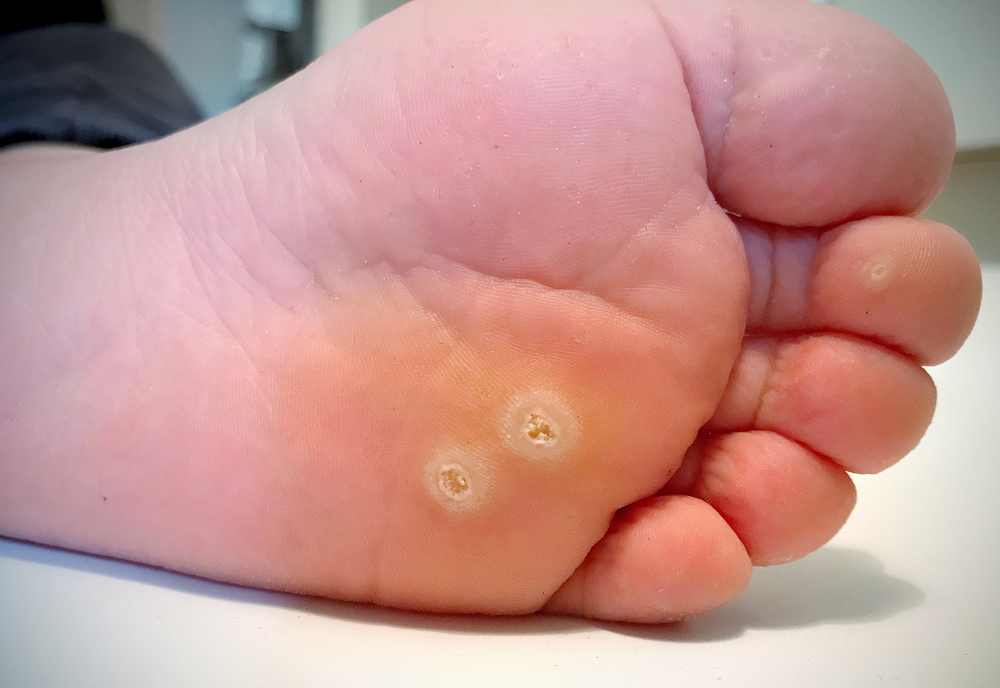
Warts can be unsightly and sometimes painful, especially if they are on the soles of the feet (plantar warts). Treatment options include over-the-counter medications, prescription drugs, freezing (cryotherapy), laser therapy, or surgical removal. In some cases, the immune system can naturally clear warts.
Skin Tags
Skin tags are small, fleshy growths that often appear in areas of friction, such as the neck, armpits, or groin. They are usually harmless and do not require treatment.
- Causes: The exact cause of skin tags is unknown, but they are thought to be related to hormonal changes or excessive skin rubbing.
- Prevention: To prevent skin tags, try to avoid excessive friction in areas where they tend to develop.

Although skin tags are generally harmless, they can become irritated or infected. If a skin tag is causing discomfort or is aesthetically bothersome, it can be removed by a dermatologist using various methods, including cauterization, ligation, or excision.
Milia
Milia are small, white bumps that often appear on the face, especially around the eyes and cheeks. They are caused by the buildup of keratin, a protein found in the skin.
- Causes: Milia are often associated with dry skin or skin irritation. They can also occur as a side effect of certain medications or skin conditions.
- Prevention: Keeping your skin well-moisturized can help prevent the development of milia. Avoid harsh soaps and exfoliants that can irritate the skin.
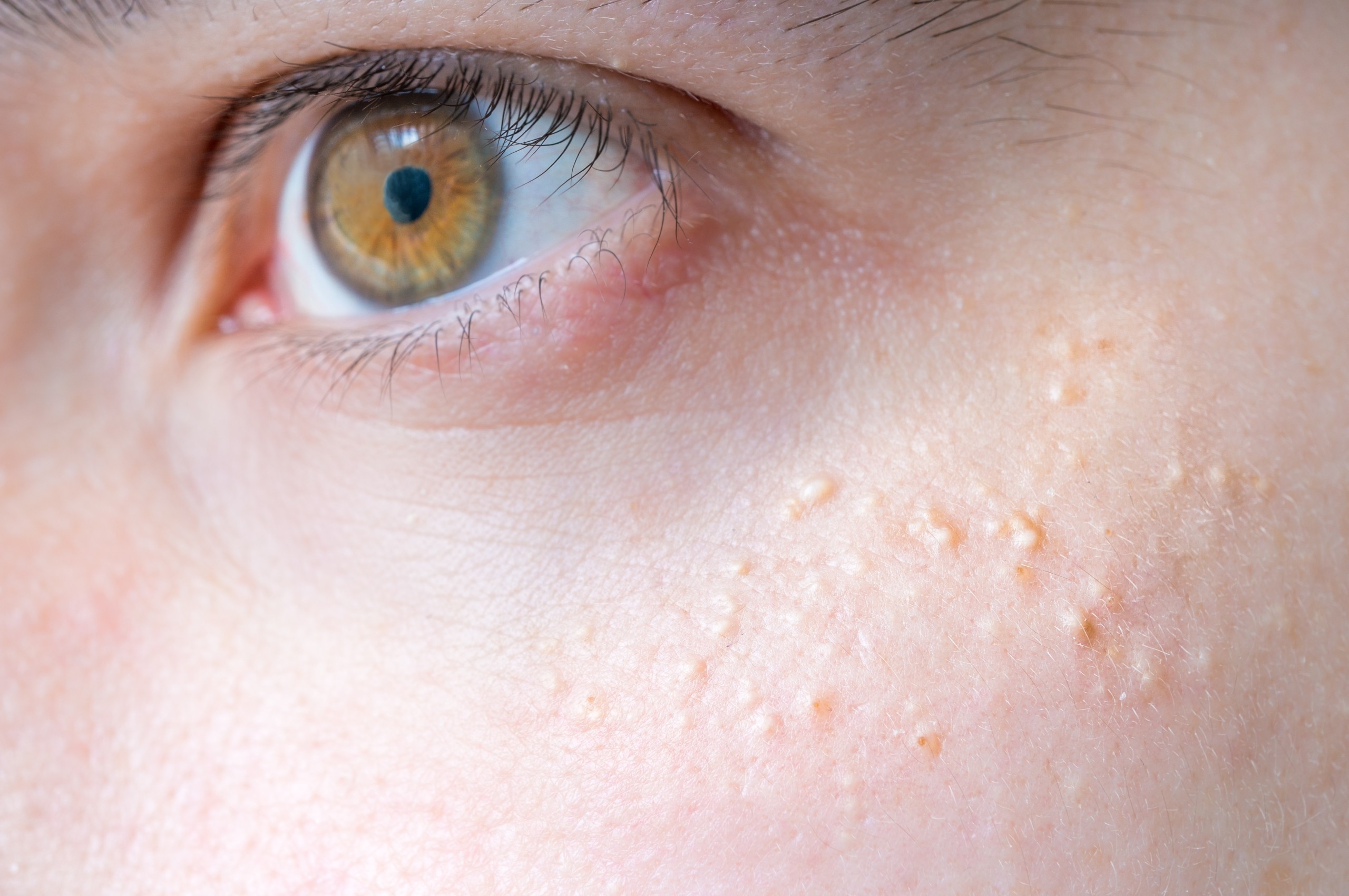
Milia are often associated with dry skin, but they can also occur in babies, a condition known as milia neonatorum. These tiny white bumps usually disappear on their own within a few weeks. In adults, milia may persist and can be treated with topical retinoids or chemical peels.
When to See a Dermatologist
While most skin growths are harmless, it’s essential to consult a dermatologist if you notice any changes in your skin, such as:
- You want them to be removed.
- Rapid growth or enlargement of a mole.
- Changes in color, shape, or texture of a mole.
- Bleeding or itching of a mole.
- Warts that are painful or spreading.
- Skin tags that are causing discomfort or embarrassment.

A dermatologist can evaluate your skin growth and determine if it requires treatment. At WEDO by Dr. Meddi, you can receive free consultations and have them safely removed according to medical standards using CO2 laser technology.
Say goodbye to unwanted moles, warts, skin tags and milia, book your appointment now!


 VIE
VIE